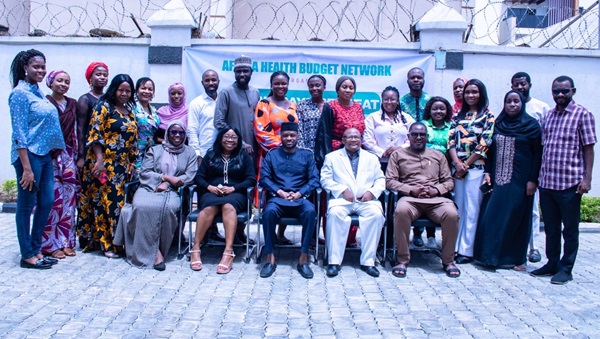
The Ministry of Health and Social Welfare has stated that the sector-wide approach (SWAp) initiative targets healthcare transformation in the country.
The SWAp national coordinator, Dr. Muntaqa Umar-Sadiq made this assertion at the two-day validation meeting of the Collaborative Advocacy Action Plan (CAAP) in Abuja. The event was organised by the Africa Health Budget Network (AHBN) in collaboration with civil society organisations (CSOs) and the media.
Despite progress in the African region, challenges persist in reproductive, maternal, newborn, child, adolescent, elder health and nutrition (RMNCEAH+N). Key gaps include non-inclusiveness, weak subnational coordination and inadequate advocacy. In Nigeria, national health policies and strategies, such as the National Health Act 2014 and the National Health Policy 2016, aim to address these issues. However, the impact of COVID-19, conflict and climate change threatens progress, necessitating collaborative support for national commitments.
Umar-Sadiq emphasised that SWAp aims to address pressing healthcare challenges facing vulnerable populations with a comprehensive strategy encompassing governance, resource optimisation, financing coordination and community empowerment. He stressed the urgency of the initiative, stating that “SWAp represents a paradigm shift in how we approach healthcare in resource-constrained settings.” By addressing systemic issues and leveraging community resources, the country has the potential to make substantial and sustainable improvements in health outcomes.
Stakeholders in the health sector urged the Federal Gvernment to strategically collaborate with stakeholders, including civil society organisations, research institutions and the private sector, to fulfill its commitments in women’s, children’s and adolescents’ health (WCAH). Effective partnerships with non-state actors and multi-sectoral engagement are crucial for progress.
While Nigeria’s health commitments are supported by sound policies and strategic plans, implementation often lacks clear roadmaps, resource allocation transparency, and accountability. Programme manager of Health Reform Foundation of Nigeria, Dr. Opeyemi Adeosun highlighted the gradual shift towards family planning and modern contraceptive use but noted under-supported issues like gender-based violence and cancer prevention. Adolescent health, in particular, suffers from minimal government prioritisation.
To address these challenges, founder of Vaccine Network for Disease Control (VNDC), Mrs. Chika Offor recommended revising policies to reflect the current economic context, ensuring consistent funding and establishing concrete milestones for progress. Prioritising adolescent health interventions is crucial, as this demographic can significantly contribute to national development when adequately supported.
Chairman of National Advocates for Health (NA4H), Hon. Mohammed Usman emphasised that enhancing advocacy, accountability and collaboration can better meet health commitments and improve the well-being of women, children, and adolescents. Nigeria’s recent initiatives include revising the RMNCAEH+N quality of care strategy and adopting a multi-stakeholder platform to achieve Universal Health Coverage and SDG targets by 2030.
Despite some progress, challenges like high neonatal mortality and poor nutrition persist. SWAp has garnered widespread support from governments, international organisations, civil society groups and philanthropic foundations. Its holistic approach and focus on collaboration have generated optimism among stakeholders. As the initiative gains momentum, eyes are on its implementation phase, with the hope that SWAp will serve as a beacon of progress and equity in healthcare for all.

